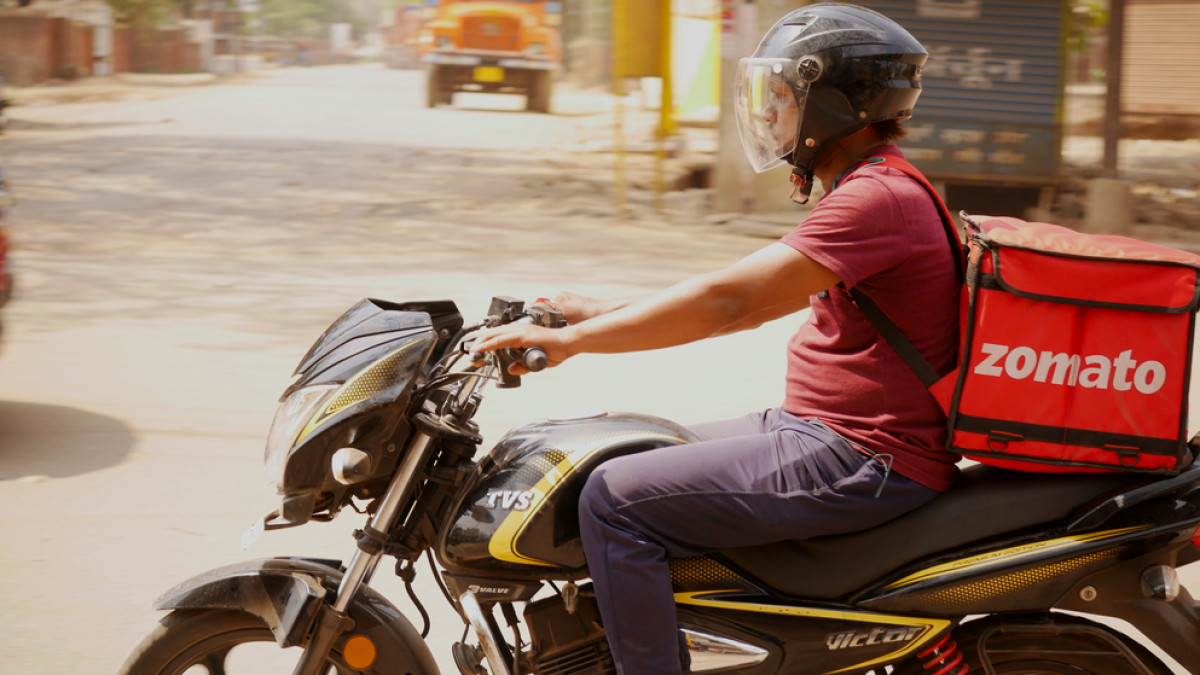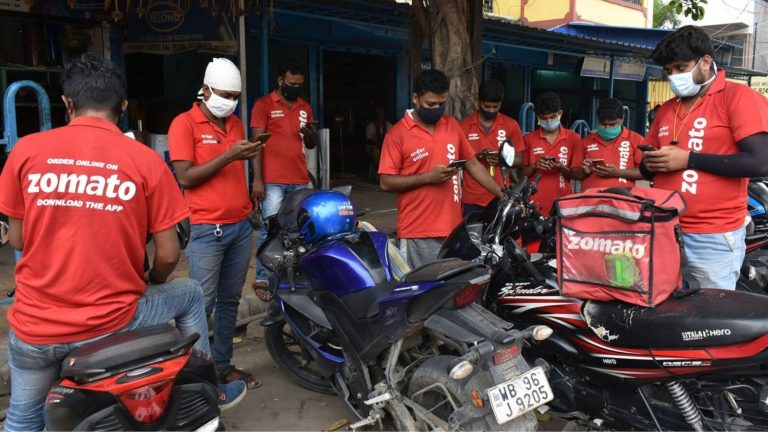Prisoners on Wheels
We listen to Sensex and Nifty’s ups and downs, we read about whether Ambani (or Adani, if you like) retains his wealth or whether there is gain or erosion in it in the newspapers. Missing out of the social debate is the plight of the people at the bottom of the social pyramid – the workers, trainees, contract workers and, yes, Gig workers. And that is a big lapse.
When we do not discuss the Gig workers or for that matter, the people at the bottom of the social pyramid, they simply go out of our radar screen. They are not in the reckoning. We do not understand their plight, their problems, and remain indifferent to them. In other words, we neglect them. They come in limelight only for wrong reasons – when a Swiggy man eats pizza in the delivery package, or when a Uber driver is involved in a wrong behaviour with a lady passenger. Public perception is built with selective inputs like these reports.
Political leaders like Raj Thackeray and Narayan Rane’s son have tried to exploit the situation – they took up the cause of the Meru Drivers – but their interest was also short lived.
Against this background I welcome the report “Prisoners on Wheels? – Report on Working and Living Conditions of App-based workers in India.” This is, as far as my knowledge goes, the first systematic study of the App-Based Workers. And Kudos to Mr. Sangam Tripathy for bringing this out with the help from Univ of Pennsylvania Institute for Advanced Study of India. Since 2017, his work has focused on active mentoring, organizing, mobilizing, and networking of grassroots level app-based drivers and riders unions, associations, and self-help groups. And he is joined by Shaik Salaudin, Gen Secr. India Federation of App-Based Transport Workers (IFAT), and President, Telangana Gig and Platform Workers Union.
Also read: Vishal Singh joins BPTP as Chief Human Resource Officer
The Problem
The problem with Gig Economy is that it refuses to accept the Employer-Employee model. Every worker is a contractor! I have seen the contracts of some of the gig workers which, clothed in ‘legalese’, run into fifty plus pages which a rider or a driver of Ola and Uber cannot understand!
A dictionary definition which I found is this: Gig workers is a person who does temporary or freelance work, especially an independent contractor engaged on an informal or on-demand basis.
And the Code on Social Security defines Gig worker as ‘person who performs work or participates in a work arrangement and earns from such activities outside of traditional employer-employee relationship.
By definition, a gig worker is out of the Employer-Employee relationship. And this has serious fall out.

The Central Issue
The central issue is that if there is exploitation somewhere in the Society, should the Government be a bystander or take proactive measures to secure good amenities to a section of working populace?
Gig workers reportedly exceed Rs 1.5 Cr in number, though the Government estimate is 77 Lakh.
Here are some glimpses of the findings of this survey:
- Over 83% drivers are working for over 10 hours a day, close to 60% are working for over 12 hours a day, and a glaring 31% drivers are working for even over 14 hours a day. A close second was 27.5%, who worked between 12-14 hours a day. Almost one fourth of the drivers work between 14-16 hours a day.
- 43.10% of the respondents earn below 500 INR a day after deducting all costs (food, fuel, etc.)
- A whopping 40.7% of respondents said they do not take a single day off in a week.
- A majority (36.8%) reported that they travel 150-200 kilometers in a day for work. 28.5% even reportedly drive 200-250 Kms every single day.
- 48.24% of the delivery persons reported that they are not able to take even one day off in a week.
- The report provides extensive data about the gig workers and their reality. I have only reproduced a sample above.
Rajasthan Government passed Rajasthan Platform Based Gig Workers (Registration and Welfare) Act, 2023 in July 2023. It provides for certain social security benefits. But it does not inform on how the grievances will be addressed. And what is neglected is more important than what is provided.
The Untold Story
The Gig and Platform Economy poses many challenges as the report points out which are Income instability, Lack of employment benefits, Job Insecurity, Legal Protections, and Mental Health Implications.
The big issue is whether the gig workers should be considered as employees, in other words should the laws of employer employee apply to them? If yes, it will give them a big relief.
I have watched the working of a ride-hailing service from close quarters. The drivers are often not educated, they are barely literate. They are handed down a contract which runs in 50 plus pages, that too in English. They sign it because they have watched others sign it. This elaborate contract is designed to plead that they are ‘contractors’ and not ‘employees’ or ‘workmen.”
That gives tremendous arbitrary powers to the organizations like Ola and Uber. And they use it too. In the race to make profits, tons of it, the central purpose of the organization (namely for the betterment of the people and society) is lost.
Kalburgi has investigated this issue and published a series of articles in the Marathi magazine Anubhav.
(I quote): Though there is no boss here, we have an App which controls us. We get Rs 20 at least per delivery. (He works for Swiggy). We get Rs 5 for every kilometer after first three kilometer. When we do 11 hours shift, we earn Rs 425 and get the incentive of Rs 100. But there are many conditions to be fulfilled to earn this income. We have to remain logged in for at least 10 hours in an 11-hour shift. We cannot reject more than one order. This is about the incentive for the day. We also get a weekly incentive. If we earn Rs 2550 we get an incentive of Rs 550, and if we earn Rs 4025 we get an incentive of Rs 950. But the condition is that we cannot avail a day off on Friday, Saturday, and Sunday. We work when people are enjoying their weekends. And customer rating must exceed 4.5 otherwise we lose the weekly incentive. If we earn weekly incentives on all weeks of the month, we make Rs 4000 to 5000.
Customer rating makes a huge difference to earning. Zomato classifies delivery partners in four categories: Blue, Bronze, Silver, and Diamond. Blue category delivery partners get 10 orders in a day, Bronze gets 11 orders in a day, Silver gets 12 orders in a day and Diamond gets 15. You have to do everything to get five-star customer rating. (Unquote)
The Report
The value of this report lies in the fact that it dispassionately presents and analyses the data about the gig workers. It is something on policies are made.
The million-dollar question is ‘will the Government make policies to alleviate the hardship of gig workers?’
Article originally published at vivek’s world – https://vivekvsp.com/2024/03/gig-workers-2/
Stay connected with us on social media platforms for instant updates click here to join our LinkedIn, Twitter & Facebook


























